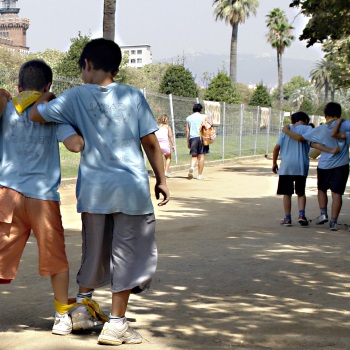 So far in our series on elementary school socialization we have focused primarily on the parent’s responsibilities. This week we take a moment to examine three of the primary barriers that cause anxiety in our children when it comes to social interaction.
So far in our series on elementary school socialization we have focused primarily on the parent’s responsibilities. This week we take a moment to examine three of the primary barriers that cause anxiety in our children when it comes to social interaction.
Fear
One of the biggest barriers to free socialization in elementary school is fear. Fear of the unknown, fear of rejection, fear of failure. Children are born fearless. Preschoolers don’t think twice about putting themselves out there for rejection. They will walk up to any other child and assume that they can be friends. That social fearlessness generally extends into Elementary school, but it can begin to erode as cliques are formed and social status becomes more important.
As parents we need to make sure that our children remain fearless. The price for trying to be friends with someone is nothing. If she accepts you, you have a new friend. If she rejects you, you are no worse off than before. Putting fear and consequences into proper perspective can go a long way toward developing an outgoing and social child.
Economics
We live in a market economy. Some children will come from families with more money than you, some will have far less. When my older son was in elementary school he had friends from both circumstances. It can be hard to relate to someone who spent his weekend jetting off to Vale or going on the hottest Disney cruise when you can’t do that sort of thing yourself. The other side is also true. It can be difficult to sustain a friendship with someone who cannot ever go play paintball or to the movies with the gang because his family can’t afford it. With each passing year these friendships get more difficult to maintain, but it isn’t impossible.
Cross-economic status friendships can and do endure through elementary school and beyond. It takes a level of commitment from the families. It takes uncommon understanding from the children, especially the one from the wealthier family. But economics do not have to disrupt a friendship before it starts.
Race
Children don’t care about the color of your skin. A kindergartener only judges her peers by race if she learns that from her parents. Your child’s views on race will be formed almost entirely — almost — by what you say and do. Not so much by what you tell her she is supposed to think, but by what she sees and hears you do and say. We live in a multicultural world. The walls between races are breaking down. You can either be a part of it or stand in the way. The choice is yours.










